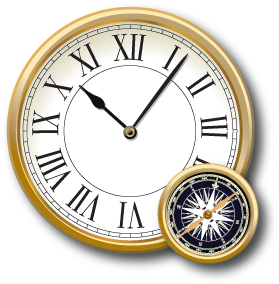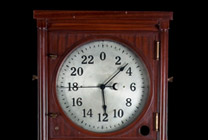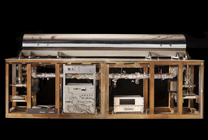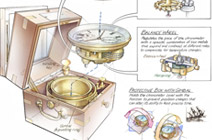If you want to know where you are, you need a reliable clock.
It might seem surprising, but knowing the accurate time is essential for determining position. Centuries ago navigators at sea relied on chronometers and measurements of celestial objects to know their location. Careful timing of the Earth's rotation allowed navigators to determine their position compared to the Sun, Moon, and stars. In recent decades, precise clocks on orbiting satellites are used to time radio signals moving at the speed of light. Methods of measuring time have changed with each generation of timepieces. Mechanical clocks use predicable movements of metal components. Crystal oscillators measure microscopic vibrations. Atomic clocks use properties of atoms to measure time to billionths of a second.
Dive in to discover more about the connection between time and place.








